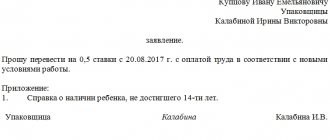Are employers required to transfer employees to remote work?
In short, no. Now in Moscow and some other regions (for example, in the Lipetsk region), measures to prevent the spread of coronavirus infection have actually been adopted and are being implemented, providing for additional responsibilities for employers and employees. In particular, in accordance with the decree of the Moscow City Hall dated 03/05/2020 No. 12-UM, organizations and individual entrepreneurs are obliged to: during the spread of coronavirus infection:
- ensure that employees’ body temperatures are measured at work places;
- remove employees with elevated temperatures from work;
- provide employees with assistance in ensuring compliance with the self-isolation regime at home.
- immediately provide, upon request of Rospotrebnadzor, information about all contacts of a person infected with the new coronavirus infection (2019-nCoV);
- ensure disinfection of premises where the sick person was;
- do not allow employees who must comply with self-isolation at home to work.
At the same time, the decree does not say anything about the mandatory transfer of employees, including those at risk, to remote work. Regional authorities adopt decrees and orders strictly within the framework of their powers and competence. At the same time, they can regulate labor relations, but only to the extent that does not contradict the Labor Code of the Russian Federation. Otherwise, regional acts will not have any legal force, and the Labor Code of the Russian Federation will be applied (Article 5 of the Labor Code of the Russian Federation).
Cheat sheet on the article from the editors of BUKH.1S for those who do not have time
1. Employers are not required to transfer employees to remote work; they do this voluntarily.
2. You cannot forcibly transfer an employee to remote work; he must agree. The introduction at the regional level of preventive measures to combat the spread of coronavirus infection does not allow employers to transfer employees to remote work on the basis of unilateral orders.
3. To transfer an employee to remote work, it is not necessary to terminate an existing employment contract and enter into a new contract for remote work. It is enough to make appropriate changes to the existing contract or sign an additional agreement.
4. The remote worker sets the work and rest schedule at his own discretion. But if the agreement specifies a specific schedule for remote work, the employee is obliged to adhere to it.
5. Remote employees are subject to all the rights and guarantees of compliance with these rights that apply to all other employees, according to the Labor Code of the Russian Federation.
That is why no one can oblige employers and their employees to change existing labor relations and switch to remote work. At the same time, regional authorities can certainly recommend that employers switch to remote work as a measure to combat the spread of infection. Thus, Moscow Mayor Sergei Sobyanin called on employers in the capital to transfer workers to remote work during the coronavirus pandemic. The head of the city noted that to date, dozens of enterprises and organizations have already voluntarily transferred their employees to work remotely.
“In the current circumstances, I appeal to all employers in the city of Moscow to follow their example and, if possible, transfer some of your employees to work from home. This is especially true for women whose children will not be going to school in the coming weeks. By doing so, you will make a huge contribution to the fight against coronavirus infection,” the mayor’s message says.
Order has been established in the field of remote work
Author Anastasia Igorevna Garina
09.04.2013 18:30
Economics » Rules of the game » Legislation
Remote work according to the law: Russian President Vladimir Putin signed a document amending the Labor Code. Now new rules for regulating remote work will come into force in the Russian Federation. At the same time, previously there were practically no special rules regarding remote workers. This area was a complete “blank spot” in the legislation.
28 shared
The new law makes changes to both the Labor Code of the Russian Federation and the law “On Electronic Signatures”. According to the new legislative definition, remote work is recognized as “work in which the employee is located outside a stationary workplace controlled by the employer personally or through representatives, and communication between the employee and the employer is maintained using public information and telecommunication networks, including the Internet.”
The legislator did not indicate when to rest and when to work for remote workers: they will figure it out themselves. That is, the working hours and rest hours are set by the employee at his discretion. Another innovation is the ability to conclude an employment contract “remotely”. To do this, you will simply need to send all the usually required documents (passport, individual personal number from the pension fund, work record book, education diploma, military registration documents, etc.) to the employer in electronic form. Based on them, he will be able to conclude an agreement, a copy of which must be sent to the new employee by registered mail with notification within three calendar days. In this case, formally the place of his detention will be recognized as the location of the employer.
If the job for which a remote worker gets a job is the first job in his life, then the legislator obliges him to take care of obtaining an insurance certificate of state pension insurance. By agreement of the parties, a work record book may not be issued to him at all. In this case, the main document certifying the fact of employment is a copy of the employment contract.
The law, signed the day before by the president, had been in development for a long time. The State Duma considered it in the first reading on October 16, 2012, and since then its text has been changed and supplemented more than once. That is, legal work was carried out on the law, and it was not adopted immediately in three readings in one day, like some normative legal acts. Such acts, as a rule, turn out to be “raw”, imperfect and require immediate revision, or even cancellation.
The fact that remote work activities will be clearly and thoroughly regulated is certainly a positive thing. The measure seems extremely timely: remote work is becoming increasingly popular both in Russia and throughout the post-Soviet space. Thus, according to the research center of the International Personnel Portal hh. ua, 91 percent of Ukrainians would be happy to work remotely. And 60 percent of office workers already have such experience behind them. Only six percent of respondents reported that they would categorically not want to work remotely, including as freelancers.
Among the advantages of remote employment is the opportunity not to be away from family (which is especially important for citizens with small children and sick relatives) and the opportunity to plan your day and spend time more effectively than sitting for eight hours in the office, often with nothing to do. In addition, supporters of remote work note that with such a system it is easier to combine two jobs.
Among the disadvantages of remote work, as a rule, is the lack of sufficient guarantees for the employee. In particular, wage guarantees. If remote work is carried out in the form of freelancing, then it has another drawback - inconstancy.
In addition, the disadvantage of working remotely is that in a number of areas it is simply not applicable: in manufacturing, construction, retail trade and others. There are also traditionally “office” professions in which there is no place for remote workers. For example, the banking sector.
Meanwhile, despite the growing popularity of remote work, its legislative regulation has so far been almost absent. The new law is designed to correct the current situation and make remote work safe for the employee and as convenient as possible for all parties to the labor relationship.
Is it possible to force employees to work remotely?
Labor relations are relationships based on an agreement between the employee and the employer (Article 15 of the Labor Code of the Russian Federation), therefore, changes in employment contracts and transfer of employees to remote work are carried out exclusively with the voluntary consent of the employee and employer.
It is impossible to transfer an employee to remote work, including temporarily, based solely on an order or instruction from the employer. The fact is that when switching to remote work, the employee’s place of work changes, which, in accordance with Art. 57 of the Labor Code of the Russian Federation is an essential condition of the employment contract. In turn, changes to the essential terms of the employment contract determined by the parties, including the place of work, are permitted only by agreement of the parties to the employment contract in writing (Article 72 of the Labor Code of the Russian Federation).
At the same time, the introduction at the regional level of preventive measures to combat the spread of coronavirus infection does not change this order and does not allow employers to transfer employees to remote work on the basis of unilateral orders. Therefore, switching to remote work will require changing the current employment contract by agreement with the employee.
To transfer an employee to remote work, it is not necessary to terminate an existing employment contract and enter into a new contract for remote work. It is enough to make appropriate changes to the existing contract.
This can be done by concluding a written agreement with the employee to change the terms of the employment contract, in which it is necessary to indicate the remote nature of the work being performed, as well as specify the conditions of such work (Article 72 of the Labor Code of the Russian Federation).
Survey
Remote work
- Are you ready to work remotely?
Yes, I could well work remotely, but the employer requires mandatory presence in the office. 269 (37.15%) I'm already working remotely. 191 (26.38%) I am ready to work remotely only during quarantine, I need a team. 116 (16.02%) Yes, I would like to work remotely, but my job responsibilities do not allow it. 88 (12.15%) No, my profession completely excludes the possibility of remote work. 60 (8.29%)
In the future, a new type of employment may be introduced into the Labor Code of the Russian Federation - temporary remote work. The bill has already been prepared; it proposes to introduce a new article “Temporary remote work” into the Labor Code of the Russian Federation. It regulates the procedure for establishing a special work schedule for an employee, allowing them to combine work at a stationary workplace on the employer’s premises with remote work. The location for remote work is allowed to be chosen by the employee himself. The introduction of such a work regime is allowed on the basis of an additional agreement to the employment contract, which can also be concluded remotely - by exchanging electronic documents.
Remote work according to the Labor Code of the Russian Federation: how to avoid mistakes?
Is coronavirus considered a force majeure event? What is the legal complexity of organizing remote work? How to act quickly and without violating the law in times of crisis? These and other questions were answered by Nikolai Simutin, partner of the law firm.
Smart transition to remote work
The legal complexity of organizing remote work is that the current norms of the Labor Code do not provide a clear answer on how to make the transfer procedure absolutely legal.
The Labor Code contains norms regulating certain nuances in the event of emergency circumstances that interfere with work, but there is no indication of the possibility of transferring an employee to remote work.
Nevertheless, there are two quick ways to transfer an employee to remote work.
Method No. 1
Conclusion of an additional agreement to the employment contract in connection with a change in the terms of the employment contract (Article 72 of the Labor Code of the Russian Federation).
To implement this mechanism, two conditions are important: the existence of an agreement between the parties to the employment contract and the conclusion of an additional agreement in writing.
The employer will need to indicate in the additional agreement:
- New format of remote work and its terms.
- Work and rest schedule.
- Amount of remuneration. Moreover, if the volume of work responsibilities has not decreased, then the amount of remuneration should not be reduced, however, by agreement between the employee and the employer, payment for remote work can be made on other terms.
- The procedure for exchanging official documentation.
- The procedure for providing an employee with the means necessary to perform a job function.
- The amount of compensation to the employee for expenses for the use of personal property for work purposes (payment for electricity, Internet, computer operation, etc.).
- The procedure for ensuring safe conditions and labor protection for employees.
- Rules and forms of employer control over an employee during remote work, etc.
Method number 2
Registration of a temporary transfer for a period of up to one month (Article 72.2 of the Labor Code of the Russian Federation).
The Labor Code allows, in the event of an epidemic that threatens the life or normal living conditions of the population or part of it, to transfer an employee without his consent to remote work, but only for a period of up to one month.
For those employers who have not yet transferred their employees to remote work, but are considering this possibility if the pandemic continues, it is possible to transfer employees to remote work according to the rules of Article 74 of the Labor Code of the Russian Federation. In accordance with this article, it is possible to adjust the terms of the employment contract determined by the parties for reasons related to changes in organizational or technological working conditions. Such a transfer is carried out at the initiative of the employer with prior notification to the employee of the upcoming change in the terms of the employment contract two months in advance.
Risk areas for employers
The main legal risks for employers lie in incorrect registration of labor relations associated with transferring employees to remote work or sending them on unpaid leave. The employer faces administrative liability under Article 5.27 of the Code of Administrative Offenses for violating the transfer procedure, officials and individual entrepreneurs face a fine of 1,000 to 5,000 rubles, and legal entities face a fine of 30,000 to 50,000 rubles.
In accordance with paragraph 19 of the Resolution of the Plenum of the Armed Forces of the Russian Federation of March 17, 2004 No. 2, when resolving cases related to transfer to another job, the courts must keep in mind that an employee’s refusal to perform work during a transfer made in compliance with the law is recognized as a violation labor discipline.
Force majeure or not?
The coronavirus infection itself is not a force majeure circumstance and does not cancel the fulfillment of contractual obligations. If a citizen or organization has contractual obligations, including credit obligations, they must be fulfilled without fail, since there are currently no official orders from the state for the quarantine period. Only the counterparty or the bank, at its discretion, has the right to grant a deferment in the fulfillment of obligations or payment of a loan.
However, if the coronavirus pandemic has created circumstances due to which the fulfillment of obligations under the contract is impossible, such circumstances can be considered force majeure. But even the presence of force majeure circumstances does not exempt from execution of the contract, but only makes it possible to delay its execution and not pay penalties.
In any case, if the contract is not fulfilled, it will not be possible to simply invoke force majeure. It will be necessary to prove a cause-and-effect relationship between a force majeure event and the impossibility of fulfilling the terms of the contract. Especially if the case goes to court.
What conditions must be specified when changing an employment contract?
The following conditions must be specified in the employment contract or remote work agreement:
- an indication of the remote nature of the work performed by the employee;
- place of remote work, which may mean the employee’s place of residence or location (letter of the Ministry of Finance dated 01.08.2013 No. 03-03-06/1/30978);
- the procedure and terms for providing the employee with the equipment, software and hardware necessary for the performance of his duties under the employment contract for remote work;
- the procedure and timing for remote workers to submit reports on work performed;
- the amount, procedure and timing of payment of compensation for the use by remote workers of equipment, software and information security tools;
- procedure for reimbursement of other expenses associated with remote work (for example, Internet payments).
Also, in the additional agreement to the employment contract, you can indicate the reasons why changes are made to it and the employee is transferred to remote work (in this situation, this will be the prevention and prevention of coronavirus infection).
Next, the agreement is signed by the employee and the employer, and the employee is transferred to remote work from the moment specified in the agreement.
Remote workers (DR) according to Labor Code
Changes in labor relations were reflected in the Code on April 19, 2013. In particular, Chapter 49.1 of the Labor Code of the Russian Federation, concerning the service of remote workers, came into force. A fundamental innovation was the separation of homeworkers and remote specialists. The first are the workers involved in the production of the product at home. The second are employees with whom a remote work agreement has been concluded. Their work must meet the following conditions, according to Article 312.1 of the Labor Code:
- Official duties are performed in premises outside the control of the employer.
- The Internet is used for interaction between participants in the labor process.
- The employment agreement can be executed electronically. However, you must provide one paper copy for the employee.
- An entry about a new place of work may not be included in the work book. Making an entry depends on the wishes of the employee and the employer.
- The employee is responsible for obtaining a certificate of pension insurance.
An employer who enters into an agreement on remote work assumes the obligations set out in paragraphs 16, 19 and 20 of Article 212 of the Labor Code.
ATTENTION! The new head of the Labor Code has introduced a rule according to which remote work presupposes the conclusion of an appropriate agreement. Is it necessary to draw up a new contract if the employee is already working under a home service contract? This is not necessary. If the employee continues to work under the old contract, no sanctions will follow. However, it is desirable to consolidate the status of the DR with the help of a new agreement.
Work of remote employees
Remote work is the performance of a labor function specified in an employment contract outside the location of the employer and outside the stationary workplace. Employees who have entered into an employment contract for remote work are considered telecommuters.
Remote workers are subject to the Labor Code of the Russian Federation and other acts containing labor law standards, and they are equally guaranteed the same rights as all other workers. In particular, they are guaranteed the right to weekly and daily rest, to receive full wages without any restrictions, to annual paid leave, to receive temporary disability benefits, to incentive/bonus payments, and so on.
The only difference between remote workers and regular workers is that they work outside of their permanent workplace. But this does not exclude contacts with the employer and control on his part. In the case of remote work, direct, personal contacts are simply replaced by Internet correspondence, telephone conversations and the exchange of electronic documents.
Despite a number of similarities, telecommuters who work remotely must be distinguished from homeworkers.
Homeworkers are considered to be persons who have entered into an employment contract to perform work at home using materials and using tools and mechanisms provided by the employer or purchased by the homeworker at his own expense (Article 310 of the Labor Code of the Russian Federation).
Based on this definition, we can say that homeworkers always produce some kind of product, while the work of remote workers is not limited to the production of products. Remote employees can provide services and perform work that does not result in the final product.
Another difference appears in the nature of the work performed. A homeworker can perform work with the participation of family members. In this case, labor relations do not arise between members of the homeworker’s family and the employer, and the employer is not interested in whose actions exactly the final result was obtained. A remote worker always performs the assigned work/task in person, which he regularly reports to the employer online (via the Internet or telephone).
Labor Code of the Russian Federation Chapter 49.1. Peculiarities of labor regulation for remote workers
Article 3121. General provisions
Remote work is the performance of a labor function determined by an employment contract outside the location of the employer, its branch, representative office, other separate structural unit (including those located in another locality), outside a stationary workplace, territory or facility directly or indirectly under the control of the employer, provided use of public information and telecommunication networks, including the Internet, to perform this job function and to carry out interaction between the employer and employee on issues related to its implementation.
Remote workers are considered to be persons who have entered into an employment contract for remote work.
Remote workers are subject to labor legislation and other acts containing labor law norms, taking into account the specifics established by this chapter.
If this chapter provides for the interaction of a remote worker or a person applying for remote work and an employer through the exchange of electronic documents, enhanced qualified electronic signatures of the remote worker or a person applying for remote work and the employer are used in the manner established by federal laws and other regulatory legal acts of the Russian Federation. Each of the parties to this exchange is obliged to send in the form of an electronic document confirmation of receipt of the electronic document from the other party within the period specified in the employment contract for remote work.
In cases where, in accordance with this Code, an employee must be familiarized in writing, including against signature, with adopted local regulations directly related to his work activities, orders (instructions) of the employer, notifications, requirements and other documents, remote the employee can be familiarized with them by exchanging electronic documents between the employer and the remote worker.
In cases where, in accordance with this Code, an employee has the right or obligation to contact the employer with a statement, provide the employer with explanations or other information, a remote worker can do this in the form of an electronic document.
To provide mandatory insurance coverage for compulsory social insurance in case of temporary disability and in connection with maternity, the remote worker sends to the employer the original documents provided for by federal laws and other regulatory legal acts of the Russian Federation by registered mail with notification.
When a remote worker submits an application for the issuance of duly certified copies of work-related documents (Article 62 of this Code), the employer, no later than three working days from the date of filing the said application, is obliged to send these copies to the remote worker by registered mail with notification or, if this indicated in the application in the form of an electronic document.
Nuances of remote work
As a general rule, the working hours and rest hours of a remote worker are set by him at his own discretion. But if the agreement establishes a specific schedule for remote work, the employee will be obliged to adhere to it (Part 1 of Article 312.4 of the Labor Code of the Russian Federation).
This means that if the contract stipulates that a remote employee works 5 days a week from 9 a.m. to 6 p.m., then the employee’s absence from the workplace at the specified time will be considered absenteeism and may lead to unfavorable consequences for him, including dismissal (clause “a” clause 6, part 1, article 81 of the Labor Code of the Russian Federation).
There are also certain nuances regarding the place of work of a remote worker. As a rule, the place of work/labor function is chosen by the remote worker himself, taking into account the need to ensure constant communication with the employer. In other words, an employee can work from any place convenient for him, where there is a stable Internet and telephone connection, allowing him to quickly resolve work issues.
However, this does not mean that a remote worker can work in a foreign country. This is due to the fact that in such cases the employer will not be able to provide the remote worker with safe working conditions and his protection, since the norms of the Labor Code of the Russian Federation do not have legal force in other countries.
Consequently, the place of work of a remote worker can be any place of residence/temporary stay of a remote worker within the territory of the Russian Federation (letters of the Ministry of Labor dated January 16, 2017 No. 14-2/ОOG-245, dated April 15, 2016 No. 17-3/ОOG-378, dated 04/15/2016 No. 17-3/OOG-578).
Moreover, if the employee’s actual place of residence is located in the Far North or equivalent areas, and the employer is located, say, in Moscow, then the employee’s salary will have to be paid taking into account “northern” allowances. And vice versa - if the employer is located in the North, and the employee lives in Moscow, then his salary will be calculated without taking into account the regional coefficient (Article 316 of the Labor Code of the Russian Federation).
As for direct contacts with management, they must be directly discussed in the text of the agreement on transferring an employee to remote work. If the employment contract/additional agreement on remote work does not indicate that the remote employee is obliged to be present in the office at the employer’s location on certain days, he is not required to come to the office.
At the same time, an employer who has not stipulated these conditions in the employment contract will not have the right to dismiss an employee for absenteeism or for systematic failure to appear at the employer’s location (decision of the Supreme Court of the Russian Federation dated September 16, 2019 No. 5-KG19-106).
Moreover, calling a remote worker to the employer’s office will be considered a business trip, and if the employee is not able to return daily from the office to his place of permanent residence, he will need to be paid a daily allowance (letter of the Ministry of Labor dated 06/09/2017 No. 14-2/OOG-4733 ).
It is clear that in the new conditions of infection prevention, remote work is due only to concern for the health and safety of employees, and it is unlikely that the employer will demand to appear in the office if he himself has declared a quarantine.
Differences between home and remote work
From the point of view of the law, since 2014 these are different types of employment. Their distinctive features are given in the table.
Comparison of home and telework
| № | Base | Homeworker | Remote employee |
| 1. | Legislative norms | Chapter 49 of the Labor Code of the Russian Federation, “Regulations on working conditions for homeworkers” No. 275, approved by the Resolution of the State Committee for Labor of the USSR, the Secretariat of the All-Union Central Council of Trade Unions dated September 29, 1981. | Art. 312.1 Labor Code of the Russian Federation |
| 2. | Definition | Persons who have entered into an agreement with the employer on home work - work from the employer’s materials or compensated by him. | Performing a labor function under a contract outside a stationary workplace or territory, with communications carried out via the Internet and other networks. |
| 3. | Predominant activity | Production, assembly, installation, etc. | Intellectual and creative work |
| 4. | Work time | The employee sets at his own discretion. The rules regarding payment of overtime, work on weekends and holidays, etc. do not apply. | The regime may be specified in the employment contract. If this is not specified, the employee has the right to install it at his own discretion. |
| 5. | Workplace | Houses where conditions for home work have been created | Where the employee deems it necessary |
| 6. | Salary | Most often piecework | |
| 7. | Contact with employer | May be minimal - only during the signing of the employment contract, as well as acceptance and delivery of work | Contact in the mode of communication networks, employer control and reporting on the part of the employee, signing an employment contract using an electronic digital signature |
| 8. | Employment history | The entry on hiring and dismissal is made in the usual manner | Entries may not be made or may be made at the request of the parties. |
| 9. | Employment contract | It is concluded in the usual manner and must contain clauses regarding the specifics of remuneration, work schedule, nuances of termination and other defining points. | |
| Additional conditions are introduced regarding the supply of materials and tools or compensation for their cost | Additional conditions are introduced on the form of control and reporting of the employee, the procedure for reimbursement of work expenses (for example, for the purchase and use of programs, technical means, etc.) | ||
Labor protection for remote workers
Transferring an employee to remote work does not end with concluding a remote work agreement with him. Please remember that remote workers are subject to the same rights and protections for those rights as all other workers. In particular, the employer must provide them with safe working conditions.
But at the same time, the employer’s responsibilities to ensure safe conditions and labor protection for remote workers are limited, “reduced” in comparison with ordinary employees. In relation to remote employees, the employer in the field of labor protection must fulfill the following duties (Part 2 of Article 312.3 of the Labor Code of the Russian Federation):
- investigate and maintain mandatory records of accidents and occupational diseases;
- comply with the instructions of inspection officials who discover violations of the rights of remote workers;
- implement mandatory social insurance of remote workers against industrial accidents and occupational diseases;
- familiarize remote workers with labor safety requirements when working with equipment and tools recommended or provided by the employer.
Other obligations of the employer to ensure safe conditions and labor protection do not apply to remote workers. In particular, with regard to remote workers, the employer is not obliged to:
- conduct a special assessment of working conditions (SOUT);
- conduct mandatory medical examinations and psychiatric examinations;
- purchase and issue personal protective equipment at your own expense;
- ensure a regime of work and rest;
- conduct training on labor protection, internships and testing of knowledge of labor protection requirements, and so on.
Thus, if there is mutual agreement between the employer and the employee, transferring him to remote work is not difficult.
At the same time, during the current coronavirus epidemic, the employer has the opportunity to protect its employees from the viral danger and save significant funds on ensuring occupational safety, and the employee has the opportunity to more effectively plan their working time and minimize the likelihood of infection.
How are you planning to pay for remote work during quarantine in the future?
The coronavirus pandemic has revealed some gaps in Russian legislation. In particular, there are no options for temporarily transferring workers to remote work due to the surge in diseases in the country. In turn, trade unions, together with the Ministry of Labor, are considering amendments to the Labor Code of the Russian Federation.
It is proposed to introduce a new term “temporary remote work” and reflect its features in a separate article. According to the proposals, personnel will be able to fulfill their duties under a previously concluded employment contract with the ability to carry out activities remotely or while at the company’s workplace. In this case, there is no need for an additional agreement, and wages will remain the same if the volume of work remains the same.
Remote workers are a new category of workers in Russian labor law
Vladimir Stepanov, Master of Laws, senior lawyer at DS Law
On April 19, 2013, Federal Law No. 60-FZ of April 5, 2013 “On Amendments to Certain Legislative Acts of the Russian Federation” (hereinafter referred to as the Federal Law) came into force, according to which the Labor Code of the Russian Federation (hereinafter referred to as the Labor Code of the Russian Federation) ) a new chapter 49.1 has been introduced, dedicated to the regulation of the labor of remote workers.
The federal law regulates the relationship that has developed in modern practice, when employers hire employees who work without being on the premises owned by the employers. If previously such employees were most often registered by employers as homeworkers, now the Labor Code of the Russian Federation has a separate chapter that provides for the specifics of regulating the labor of this category of workers.
General provisions on remote work
The federal law introduced the concept of remote work. According to Part 1 of Art. 312.1 of the Labor Code of the Russian Federation, remote work is the performance of a labor function specified in an employment contract outside the location of the employer, its branch, representative office, other separate structural unit (including those located in another area), outside a stationary workplace, territory or facility directly or indirectly under control employer, subject to the use of public information and telecommunication networks, including the Internet, to perform this job function and to carry out interaction between the employer and employee on issues related to its implementation.
From this definition, two main features of remote work can be identified. Firstly, such work is performed outside the location of the employer, its separate division, outside a stationary workplace, territory or facility directly or indirectly under the control of the employer. This feature distinguishes remote workers not only from workers working at the employer’s site (office), but also from homeworkers working at home, since the employee’s home can in this case be considered a place indirectly under the control of the employer. It is fair to say that remote workers, in principle, do not have a workplace in the legal sense of the word (the definition of a workplace is given in Article 209 of the Labor Code of the Russian Federation).
Secondly, the second sign of remote work is the use of public information and telecommunication networks (including the Internet) to perform work functions and interact with the employer. This feature can be considered secondary, since the use of public networks is typical for many types of work performed at the employer’s site.
Interaction between employer and remote worker
The federal law defines a new method for Russian labor law of interaction between the parties to an employment contract - the exchange of electronic documents. A prerequisite for such an exchange is the use of enhanced qualified electronic signatures by the remote worker (a person applying for remote work) and the employer. In the form of electronic document exchange, the following can be carried out: concluding an employment contract and changing its terms (Part 1 of Article 312.2 of the Labor Code of the Russian Federation), familiarizing the employee with the internal labor regulations, other local regulations, orders (instructions) of the employer, a collective agreement (Part. 5, Article 312.2 of the Labor Code of the Russian Federation, Part 5 of Article 312.1 of the Labor Code of the Russian Federation), presentation by an employee applying for work of the documents provided for in Art. 65 of the Labor Code of the Russian Federation (Part 3 of Article 312.2 of the Labor Code of the Russian Federation), provision by the employee of explanations or other information (Part 6 of Article 312.1 of the Labor Code of the Russian Federation).
Concluding an employment contract on remote work
Since the maintenance of personnel documentation in Russia is carried out in paper form, the Federal Law provides for the obligation of the parties to an agreement on remote work to provide copies of documents in paper form. If an employment contract on remote work is concluded by exchanging electronic documents, the employer is obliged no later than 3 calendar days from the date of conclusion of the employment contract to send the employee a copy of this employment contract on paper (Part 2 of Article 312.2 of the Labor Code of the Russian Federation). An employee who has provided the employer with the documents provided for in Art. 65 of the Labor Code of the Russian Federation, in electronic form, in turn, is obliged, at the request of the employer, to send him notarized copies of these documents on paper (Part 3 of Article 312.2 of the Labor Code of the Russian Federation).
The specifics of remote work determine the methods for obtaining an insurance certificate of state pension insurance and a work book for a remote worker. If an employment contract for remote work is concluded by exchanging electronic documents by a person entering into an employment contract for the first time, this person receives an insurance certificate of state pension insurance independently (Part 4 of Article 312.2 of the Labor Code of the Russian Federation). As for the work book of a remote worker, by agreement of the parties to the employment contract on remote work, information about such work may not be entered into the work book of the remote worker, and when concluding a work book for the first time, a work book for a remote worker may not be issued (in such cases, the length of service is confirmed by a copy of the work record). agreement - Part 6, Article 312.2 of the Labor Code of the Russian Federation).
It should be noted that an important feature of the norms of the Labor Code of the Russian Federation on remote work is the provision of wider opportunities for the parties, compared to a classic employment contract, to determine its terms. In particular, the employment contract on remote work defines:
a) the procedure and timing for providing the remote worker with the necessary equipment, software and hardware, information security tools and other means;
b) the procedure and timing for remote workers to submit reports on work performed;
c) the amount, procedure and terms of payment of compensation for the use by a remote worker of equipment, software and hardware, information security tools and other means owned or leased by a remote worker (Part 1 of Article 312.3 of the Labor Code of the Russian Federation);
d) other terms of the employment contract for remote work, provided for by the Labor Code of the Russian Federation.
Federal law does not provide for any provisions regarding the conclusion of an employment contract for remote work for a certain period. Thus, an employment contract of this type can be fixed-term only if there are grounds provided for in Art. 59 Labor Code of the Russian Federation.
Occupational safety, working hours and rest time for remote workers
The peculiarities of remote work determine the specific application of labor protection standards to remote workers. The federal law has significantly reduced the list of employer responsibilities to ensure safe working conditions and labor protection. This list includes:
a) sanitary, medical and preventive services for workers in accordance with labor protection requirements, as well as delivery of workers who become ill at work to a medical organization in the event of the need to provide them with emergency medical care (paragraph 16, part 2, article 212 of the Labor Code RF);
b) compulsory social insurance of workers against accidents at work and occupational diseases (paragraph 19, part 2, article 212 of the Labor Code of the Russian Federation);
c) familiarization of workers with labor protection requirements (paragraph 20, part 2, article 212 of the Labor Code of the Russian Federation), including labor protection requirements when working with equipment and tools recommended or provided by the employer (part 2, article 312.3 of the Labor Code of the Russian Federation).
Since the remote worker is not under the direct control of the employer, he sets the working hours at his own discretion. This provision is dispositive, that is, the employment contract may provide otherwise (Part 1 of Article 312.4 of the Labor Code of the Russian Federation). At the same time, the provisions on working hours provided for in the contract should not limit the rights or reduce the level of guarantees of a remote worker in comparison with those established by labor legislation and other regulatory legal acts containing labor law norms; if such conditions are included in a collective agreement, agreement or employment contract, then they are not subject to application (Part 2 of Article 9 of the Labor Code of the Russian Federation). In particular, an employment contract for remote work may provide for an irregular working day, but this does not mean that the remote worker is obliged to systematically work outside the established working hours (for most workers this is 40 hours a week - Part 2 of Article 91 Labor Code of the Russian Federation).
The procedure for providing a remote worker with annual paid leave and other types of leave is determined by the employment contract on remote work in accordance with this Code and other acts containing labor law standards (Part 2 of Article 312.4 of the Labor Code of the Russian Federation).
Termination of an employment contract for remote work
Termination of an employment contract for remote work at the initiative of the employer is carried out on the grounds provided for in the employment contract (Part 1 of Article 312.5 of the Labor Code of the Russian Federation). Obviously, this provision must be interpreted broadly: termination of the contract for remote work is carried out at the initiative of the employer on the grounds provided for in Art. 81 of the Labor Code of the Russian Federation, as well as on the grounds provided for in such an employment contract. Again, contractual grounds must not be discriminatory. According to Art. 3 of the Labor Code of the Russian Federation, restrictions on labor rights and freedoms depending on circumstances not related to the employee’s business qualities are not allowed. Restrictions on the rights of workers that are determined by the requirements inherent in a given type of work are not discrimination.
According to Part 2 of Art. 312.5 of the Labor Code of the Russian Federation, if familiarization of a remote worker with the order (instruction) of the employer on the termination of an employment contract is carried out in the form of an electronic document, the employer on the day of termination of this employment contract is obliged to send the remote worker by registered mail with notification a duly executed copy of this order (instruction) on paper.
Conclusion
The introduction into the Labor Code of the Russian Federation of a chapter on the peculiarities of the labor of remote workers seems to be an unconditionally positive step by the legislator, aimed at streamlining the existing relations regarding remote employment. At the same time, based on the current norms of the Labor Code of the Russian Federation, work can be either remote or “stationary” (on the employer’s premises or at home). That is, workers do not have the legal opportunity to combine these two types of work (in practice, such a combination is also very common). Perhaps one of the next stages in the development of Russian labor legislation will be the establishment of the ability to work both remotely and “stationary” within the framework of one employment relationship.
In connection with the introduction of provisions on remote work, the issue of distinguishing between an employment contract on remote work and a civil law contract seems difficult. In remote work relationships, one of the properties of a classic employment contract is missing - the presence of the employee at the employer’s enterprise.
Therefore, many of the existing civil law contracts with citizens working in outsourcing may be very similar to employment contracts for remote work. Moreover, federal bodies authorized to supervise the labor sector can use the new institution of labor law as a means of putting pressure on employers to force them to conclude employment contracts on remote work, rather than civil law contracts, with citizens working in outsourcing.









